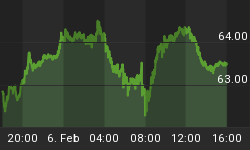
FRA Co-Founder, Gordon T. Long interviewed Robert Blumen, noted follower of the Austrian School of Economics, on the Core Tenets of the Austrian School and the Key Elements for investing in an Era of Financial Repression.
Core Tenets
1. All economic understanding must be based on individual action
2. Subjective valuation drives prices
3. Marginal utility
4. Entrepreneurship
5. Time preference as the basis of interest and profit
6. The role of capital in production
7. Savings is required to create capital
8. Price Theory: - prices determine costs, not the other way around
9. Money as an evolutionary solution the problem of barter
10. Precious metals as an evolutionary solution to the choice of the best money
11. The purchasing power of money as a price that balances money supply and money demand
12. Non-neutrality of money (Cantillon effects)
13. The importance of money prices
14. Money is a good, and like any good, money does not have constant purchasing power. Stable money does not mean stable prices.
15. Mises' "critique of intervention": one thing leads to another
16. The "impossibility" of socialism (central planning)
17. Macro-Economics must be founded on micro economics
18. Macro-economics is based on Say's law.
19. The rejection of the Keynesian revolution in macro.
20. Money and money substitutes (bank deposits, bank notes).
21. Banking with 100% gold reserves
22. Fractional reserve banking. The Austrian critique of fractional reserve banking
23. Central banking. The Austrian critique of central banking.
24. Austrian business cycle theory - the theory of unsustainable booms drive by fractional reserve banking and central banking.
a. Inflation is not just rising prices, it distorts production as well.
b. Distortions are unsustainable
c. The "crack up bust" as one possible ending to the unsustainable boom
25. Deflation:
a. Deflation has been demonized by the Keynesians.
b. Natural slow deflation is the result of increasing production.
c. Deflation is the correction process from inflation.
d. Deflation is not a mouse trap that the economy gets stuck in and cannot escape.
26. An Austrian understanding of recessions and depressions through Say's Law, entrepreneurship, and market price theory
Key Elements in an Era of Financial Repression
1. Entrepreneurs create wealth by employing scarce resources in production within the context of the price system.
This requires real markets with real prices.
2. Central planning can not replace market prices.
3. Central bankers have it backwards. Counter-cyclical policies create the business cycle.
4. Interest is not a number you can set to anything you like for "policy" reasons. It is a price and it cannot be zero.
5. Attempting to keep interest rates at zero creates unsustainable distortions in the productive part of the economy.
6. Something that is unsustainable must stop - at some point.
7. In the end there are two choices - market prices or destruction of the monetary system
8. Investors think in terms of money, but money itself is unstable.
9. The path from fake prices to real prices will be difficult.















